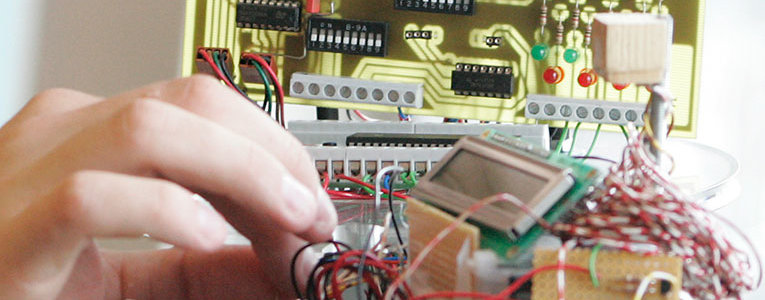
Systems Engineering is an important area of expertise that runs right through the production and design environment and is of increasing importance in healthcare and surgery. The Microsystem Technology & Systems Engineering Lectorate of HU University of Applied Sciences Utrecht promotes SE methodologies and offers education and training to students and professionals.
The application of systems engineering in (academic) hospitals, clinics, and practices is still relatively new. The USA currently seems to be at the forefront of two leading research institutes; the Mayo Clinic in Rochester holds a chair in medical systems engineering and the Physics Lab at the John Hopkins University in Baltimore, an authority in systems engineering, has a number of current research programs that roll out SE within hospitals.
In the literature, the following critical factors are mentioned in the field of the use of high-tech medical products, systems or methods:
- Inadequate integration of resources due to incoherent systems and procedures;
- Insufficient modelling of (repetitive) phenomena which results in insufficient use of the learning capacity of the organisation; and;
- Validation and certification run up against the limits of what is feasible due to the accumulation of systems whose exact functionality and interactions are difficult to oversee (think of the many devices with embedded software in the operating theatre).
During the activities and working methods in the operating theatre and clinics, the medical 'reflective practitioners' are charged with a variety of matters that need to be organised: equipment, working environment, hygiene and, last but not least, the correct execution of prescribed procedures. All these matters are characterized by a high degree of sub-optimization, often because things have evolved over time as patchwork.
The medical sector needs a new approach in which the needs of patients and clinicians are paramount. Automation and applied robotics are also becoming an increasingly important issue in the clinic. In the Fieldlab 3D Medical, companies and students jointly innovate in the field of 3D digital workflow. Automation of surgery in the operating theatre, the use of robotics and the smart automation of the design and production of implants can make a difference provided that the workflow is known and optimised. This optimisation of work processes must be the result of a Systems Engineered approach. In order to unlock the possibilities offered by robotisation, it is also important to coordinate the processes, design methods and working method here.
SMEs that develop high-tech medical products, systems or working methods within this context must integrate and seamlessly merge technology, people and processes. This requires close cooperation with the medical field. These complex developments are the domain of systems engineering and require the advantages of both linear and iterative systems engineering methodologies. In this way, a combination of thoroughness and flexibility can arise in the operating theatre and in clinics.
Overview of publications on Product, Process and Systems Engineering
Check out the overview of publications on this expertise.
Interested?
Please contact:
ir. Annemieke de Raad
New Business Development Manager Fieldlab 3DMedical
Contact via annemieke.deraad@utrechtsciencepark.nl or
+316 183 028 48.

